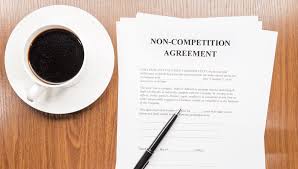When Massachusetts passed its complex and restrictive noncompete law in 2018 (the “Massachusetts Noncompete Act” or the “Act”) it was predictable that the use of noncompete agreements in the state would decline. See A New Era In Massachusetts Noncompete Law. And, in fact, until now there have been no reported cases that involve the Act. Anecdotally, with few exceptions employers have stopped asking employees to enter into noncompete agreements. It’s just too darn complicated.
As I summarized in my 2108 post, the Massachusetts Noncompete Act created eight requirements for a noncompetition agreement to be legally binding. Of these the most challenging (for employers and the lawyers who advise them) is the requirement that the agreement provide the employee with garden leave “or other mutually-agreed upon consideration . . . specified in the noncompetition agreement.”
“Garden leave” is a term used to describe when an employee leaving a job is required to stay away from work for a period of time while continuing to be paid. As I described in 2018 in describing the Massachusetts Noncompete Act, garden leave occurs when an employer is required “to continue paying the employee, during the restricted period on a pro rata basis, no less than 50% of the employee’s annualized base salary, thereby financially enabling the employee to putter around in her ‘garden’ during the restricted period.” In other words, a one year noncompete would require the employer to pay the employee 50% of her base salary during the year.
Garden leave can be expensive for employers. However, the law contains a loophole – it allows the employer and employee to avoid garden leave by agreeing on “other mutually-agreed upon consideration.”
What constitutes “other consideration”? Does it have to be reasonable? Could an employer buy its way out of garden leave if the employer and employee agreed that the consideration could be one dollar? Could they agree that the very job offer itself is the mutually-agreed upon consideration?
Now a decision by Judge Timothy Hillman in the Massachusetts federal district court is the first reported case to apply the Massachusetts Noncompete Law. Because it is the first case in three years, it has received a good deal of attention in the legal community – however, I see it as little more than a nothingburger, beyond being a warning to employers not to ignore the Act.
In the case – KPM Analytics Corp. v. Blue Sun Scientific, LLC – Philip Ossowski signed a noncompete with KPM in 2019, after the new law took effect. However, Ossowski’s agreement did not state that Ossowski had the right to consult with counsel prior to signing (one of the eight requirements). And, it did not contain a garden leave clause or an agreed-upon consideration that would have allowed the employer to avoid garden leave payments. Hence, the court concluded that the agreement was unenforceable by KPM.
What’s the takeaway from this case?
Well, for starters any other outcome would have been surprising. The noncompete agreement violated the “consult with counsel” requirement, and it made no mention of garden leave at all. Therefore it failed two of the eight requirements. It seems that some Massachusetts lawyers have read the decision as holding that employment alone may not provide consideration for garden leave, but to me that seems self-evident, since it would largely obliterate the garden leave requirement. In any event, Judge Hillman does not address this theory or discuss it in his opinion.
However, Massachusetts lawyers are starved for court guidance on this law – after all it’s been three years since the law took effect. The only other case to touch on garden leave in the last three years is Nuvasive, Inc. v. Day (D. Mass. May 29, 2019), which involved a noncompete that had been entered into before the effective date of the Act. The Act does not apply to noncompetes entered into prior to its enactment.
In Nuavsive Massachusetts federal district court Judge Caspar suggested that had the new law applied and garden leave required, “compensation … received from the Company (including for example monetary compensation, Company goodwill, confidential information, restricted stock units and/or specialized training)” might have satisfied the option for “other mutually-agreed upon consideration.” However, given that the law did not apply in that case this was little more than dicta. And, she provided no discussion or rationale for such a conclusion.
The bottom line is that after KPM Analytics and Nuvasive, and three years after the law took effect, we still have no guidance from the legislature or the state courts as to how an employer and employee can agree on consideration that will stand in lieu of garden leave, without the risk that the employee will argue that the consideration was inadequate and therefore the noncompete is unenforceable.
I ended my 2018 post with the comment that “lawyers will struggle to explain all of this to bewildered clients, both employers and employees, for years to come.” Three years later, nothing has changed.
